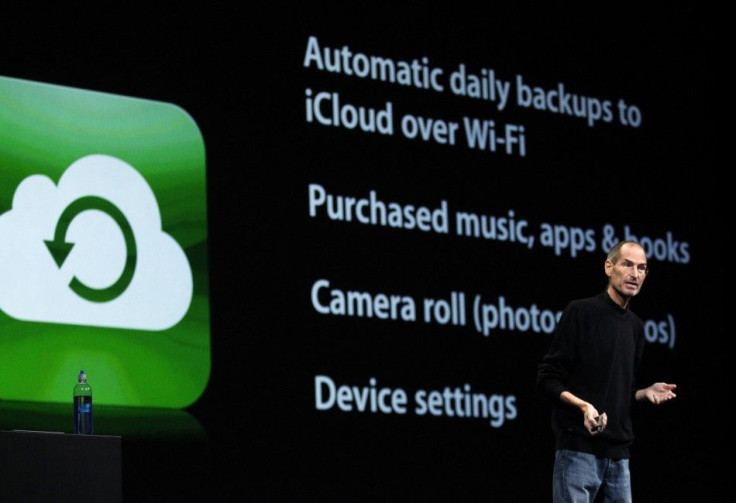iCloud free 5GB storage, with iTunes Match on the cloud for $24.99 a year

At the WWDC Keynote, Steve Jobs made the long-awaited iCloud announcement. Despite all the speculations and rumors, iCloud is much more than a music streaming service, and can possibly threaten all the existing cloud services.
iCloud is a completely wireless experience, where you can access your music library, documents, photos, and all contents from any iOS device, from anywhere. In an era where everyone juggles with multiple devices, iCloud is the solution to all the hassle of keeping all these devices in sync.
We are going to move to the digital hub, the center of your digital life, into the cloud, Jobs said.
iCloud can be accessed from Macs, iPhones, iPads, and iPod Touches.
Now, if I get something on my iPhone, it's sent to the cloud immediately, and they're pushed down to my devices automatically. And now everything is in sync without having to think about it. I don't have to be near my Mac or PC.
The Apple CEO continued, Some people think the cloud is just a big disk in the sky... We think it's way more than that. iCloud stores your content in the cloud and wirelessly pushes it to all your devices. It automatically uploads it, stores it, and pushes it to all your devices. Everything happens automatically and there's nothing new to learn.
Additionally, there will be daily wireless cloud backup for all the contents.
iCloud is completely integrated with all your apps, automatically storing everything in the cloud space. It seems that Apple is ready to take care of all your digital files- music, iBooks, documents, photos and calendars. iCloud includes Photo Stream that automatically saves the photos in the cloud.
While a late player in the game, Apple could run ahead of other cloud service providers by creating a single massive entity that takes care of all services and files. iCloud will offer 5GB of free storage, and the service will not feature any ads. Its tight integration with the iPhone and iPad may give iCloud an advantage in the cloud storage service competition, where Microsoft Live Mesh is free for 5GB and Dropbox free for 2GB.
iCloud is available today for developers, and will ship with iOS5 this fall.
And that's not the end of the story.
The one more thing at 2011's keynote was iTunes Match. Apple on its website claims that iTunes Match is the perfect solution for taking advantage of all the benefits of iTunes in the cloud for music yet to be purchased from iTunes. iTunes Match will scan your computer for music and determine which songs are available in the iTunes store, adding the matched music to the iCloud library. This way, the user only has to upload the songs iTunes cannot match.
Even if the original copy is of low quality, all the music iTunes matches will play at 256-Kbps iTunes plus quality.
No matter how many songs you upload, the cost of iTunes Match is $24.99 per year. The number of songs is limited to 25,000, and iTunes Match will require an iOS5 device. When you upgrade to iOS5, you will have iCloud by signing in with your Apple ID to your device.
This way, your entire music collection will be locked up into iTunes. Instead of the rumored iCloud taking over iTunes, now iTunes is on the cloud, a much greater advantage over competing services from Google and Amazon, touted Apple. Amazon's cloud-based music service, Cloud Drive, would cost $200 a year to store 20,000 songs.
Steve Jobs left the stage without giving answer to the question of whether iTunes will only sync purchased music in iCloud. Some are debating over whether, with iCloud, Apple is killing music piracy through online file sharing. In making deals with the major labels, Apple faced big philosophical hurdles. Some executives felt strongly that making a deal for a system that didn't distinguish between legitimately acquired music and pirated tunes could appear to be an endorsement of piracy, reported the Wall Street Journal. At the same time, a counter-argument suggests that the labels can collect some revenue from the pirated content through the deal with Apple.
Whether iCloud will be secure, and whether iTunes match will be piracy-friendly, we don't know. Let's hope that Apple's step into the cloud will keep the users' files secure and protected.
© Copyright IBTimes 2024. All rights reserved.











